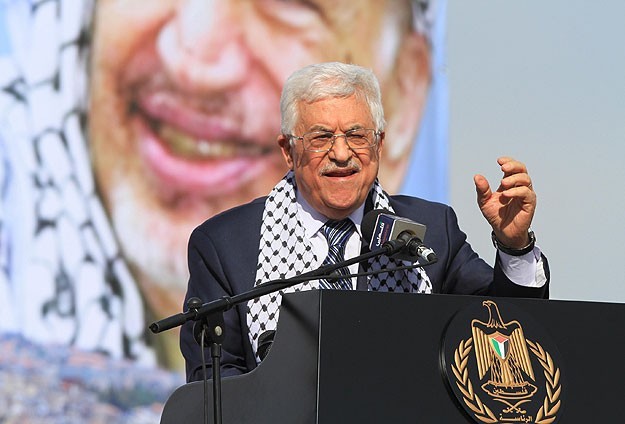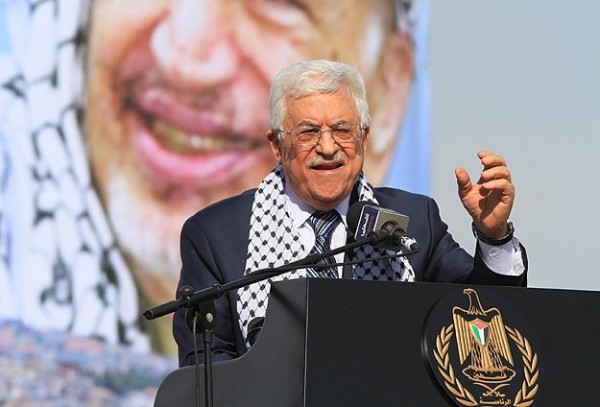

By: Adnan Abu Amer
Source: al-monitor.com
Although Fatah was preparing to hold the 10th anniversary memorial for the death of President Yasser Arafat on Nov. 11 in the Gaza Strip, developments in the past few days have pushed Gaza officials to cancel the ceremony.
Fatah official Zakaria al-Agha said during a news conference in Gaza on Nov. 9, attended by Al-Monitor, that the reason behind the ceremony’s cancelation was the series of bombings that targeted a number of Fatah leaders in Gaza on Nov. 7. Gaza’s security apparatus informed Fatah that it could not secure the ceremony and protect the participants, which contradicted Hamas’ previous positions that it would not stand in the way of Arafat’s memorial.
However, Hamas spokesman Sami Abu Zeid announced at a news conference on the evening of Nov. 9 that canceling the ceremony was an internal Fatah decision and Hamas had nothing to do with it. Abu Zeid asked not to attribute Fatah’s internal crises to Hamas and not to involve the movement in Fatah’s organizational issues.
Eyad al-Bozum, spokesman for the Ministry of Interior in Gaza, told Al-Monitor, “The reason behind the security apparatus not securing Fatah’s ceremony is attributed to the highly tense public opinion, the exchange of accusations following the latest bombings, Prime Minister Rami Hamdallah’s lack of communication with the security apparatus in Gaza, in addition to the fact that the ministry has not been given budgets and its employees’ salaries have not been paid.”
In a news conference on Nov. 9, Islamic Jihad senior official Khaled al-Batsh warned about the repercussions of Arafat’s ceremony cancelation in Gaza.
However, a prominent Fatah official in Gaza told Al-Monitor, on condition of anonymity, “Hamas’ recent behavior in canceling Arafat’s ceremony directly grazes the course of the reconciliation. It will have regrettable repercussions on the internal Palestinian situation.”
Bozum added, “The Ministry of Interior and Fatah had reached an agreement concerning the security of the ceremony after Maj. Gen. Salah Abu Sharekh, director general of the Internal Security Forces in the Gaza Strip, met with Hisham Abdel Razek, a Fatah representative, on Nov. 2. The two agreed on the details of the ceremony and the relevant security agencies were given directions to make the necessary arrangements to secure the ceremony.”
However, the preparations for the ceremony were blocked after Gaza underwent, on the morning of Nov. 7, a series of bombings in front of the houses of Fatah leaders. The bombs seem to have targeted supporters of Palestinian President Mahmoud Abbas.
During a news conference on the same day, Ousama Qawasmi, Fatah’s spokesman in the West Bank, accused Hamas of being behind the bombings to sabotage Arafat’s ceremony and destroy the principles of reconciliation. He said that these bombings followed a decision from Hamas’ highest political level, to justify that Gaza’s security situation did not allow holding the ceremony.
Ghazi Hamad, a representative of the Ministry of Foreign Affairs in Gaza and a Hamas leader, said in a radio interview on Nov. 8 that the purpose of the attacks targeting Fatah leaders was to distract the people from the events in Jerusalem and to ruin Gaza’s image by making it look like a flash point. Hamad also asked to hold accountable those responsible for the bombings, and to bring them to justice.
Al-Monitor had learned that a delegation of Fatah leaders in the West Bank and prominent members of the central committee and the revolutionary council were to attend the ceremony in Gaza and hold meetings with the Hamas leadership to discuss the pending reconciliation files. However, the visit was canceled due to the latest developments.
Mushir al-Masri, spokesman for Hamas’ parliamentary bloc in the Palestinian Legislative Council, told Al-Monitor that the movement “played a key positive role in facilitating the holding of Fatah’s ceremony in Gaza, to promote the Palestinian reconciliation,” hoping that “this will be met by a step [on the part of Fatah] to activate the freedoms [of Hamas] in the West Bank.”
A number of activists in Gaza, including Hamas members, took to Twitter to call for the suspension of Fatah’s ceremony until the consensus government officially recognizes the previous Hamas government employees and confers greater freedoms on Hamas supporters in the West Bank similar to those enjoyed by Fatah in Gaza. They used the following hashtag (translated from Arabic): “You will not celebrate.”
Masri told Al-Monitor, “Hamas members in the Interior Ministry are still subject to the movement’s decision characterized by a sense of national responsibility. These tweets aim to pressure the Hamas leadership and the consensus government into promptly deciding on their [the activists’] cause.”
The Hamas-affiliated Felesteen newspaper on Nov. 8 accused former Fatah strongman and Abbas’ archrival Mohammed Dahlan of being behind the Gaza bombings. According to the paper, Dahlan opposed Fatah leaders from the West Bank attending the ceremony in Gaza, particularly those affiliated with Abbas.
In this regard, Masri said, “Hamas had concerns that internal conflicts within Fatah would arise during the ceremony, as happened before. Hamas vowed to provide a calm environment for the ceremony to happen under secure and peaceful circumstances, before it was canceled.”
Palestinians in Gaza hoped that Arafat’s ceremony would have been a step forward toward reconciliation and reuniting Gaza with the West Bank. But the memorial’s cancelation has added fuel to the fire in the Hamas-Fatah feud and threaten what’s left of the trust between both parties.



